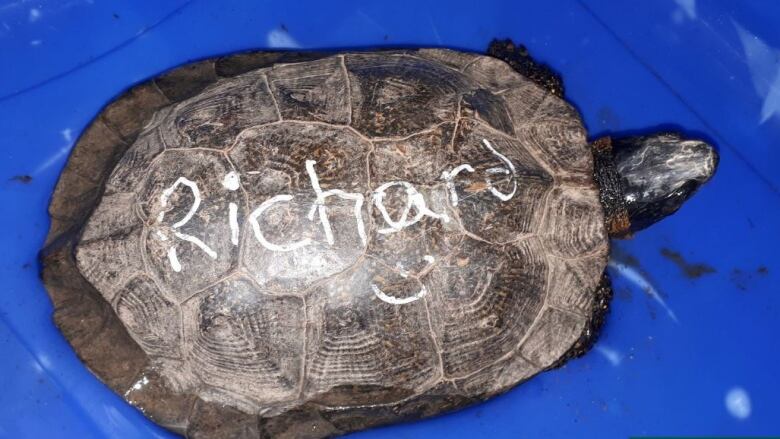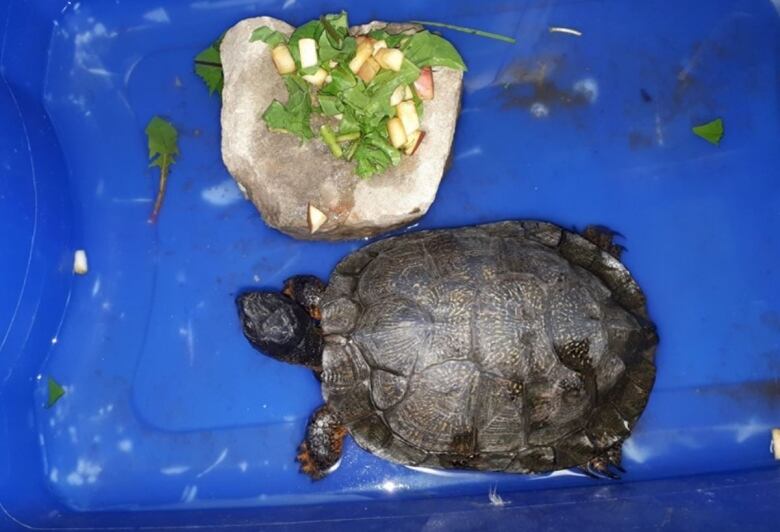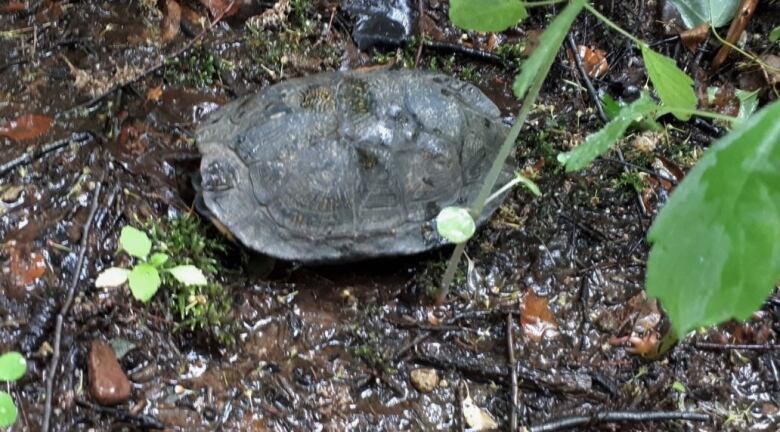Wildlife institute treats graffitied wood turtle found in New Brunswick
Wood turtles are considered a species at risk

In today's lesson that shouldn't have to be taught, the Atlantic Wildlife Institute is urging the public not to paint turtles.
The institute recently treated and released a wood turtle that had "Richard :)" writtenin bright white letters on its shell, said Pam Novak, director of wildlife care.
Although the turtle was in good health, Novak said it was vital to remove the paint because it distorts the animal's colouring and puts it at risk of being easily spotted by predators.
"What people don't realize is that turtles and any other animals are marked and their colorings are very specific to why they need to have that, and, if you alter that, you're just putting an advertising out that's there," Novak told Shift New Brunswick.
While it's best not paint any turtle, or any other animal for that matter, risking the safety of a wood turtle is especially troubling since it's a species at risk.
The wood turtle, a freshwater turtle that can grow upwards of 25 centimetres long, is dispersed throughout northeastern North America, including New Brunswick, Nova Scotia, Quebec and Ontario, according to the national species at risk registry.
But the population has been declining for decades. Researchers estimate there are between 6,000 and 12,000 adults left in Canada.

The registry lists its Species at Risk Act status as "threatened" the step below being considered endangered. The act is written to protect at-risk living creatures and their habitats.
The wood turtle treated by the institute was a breeding female between 20 and 25 years old, Novak said.
"She's quite valuable and necessary for the population in that particular area," Novak said. "And you don't want to remove an animal like that. You want to get them back and, you know, protect them as much as possible."
She said an individual called the institute after finding the turtle crossing a road.

It's typical to see turtles on the road at this time of year, she said. Many of them are female and heading toward an area to lay their eggs.
"A lot of times we just tell callers to, you know, move them in the direction that they're heading down at least off the road, if that's safe to do so and don't alter their course anymore," she said. "Let them go where they want to go, but just keep them in the right direction."
The Atlantic Wildlife Institute is a non-profit wildlife care centre based in Cookville, N.B., a 20-minute drive from Sackville.
With files from Shift New Brunswick












_(720p).jpg)


 OFFICIAL HD MUSIC VIDEO.jpg)
.jpg)



























































































